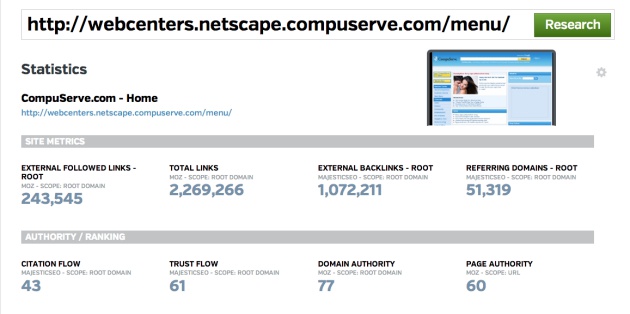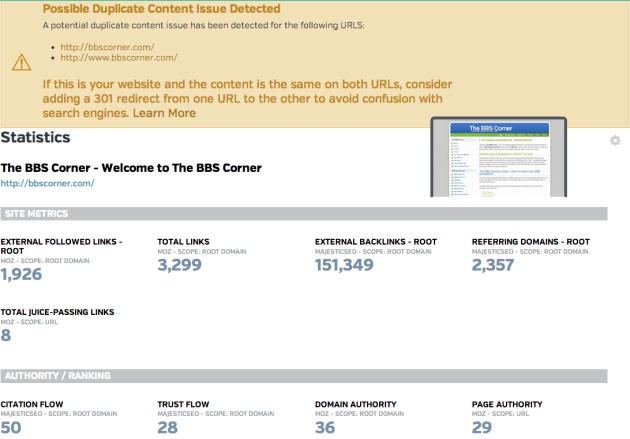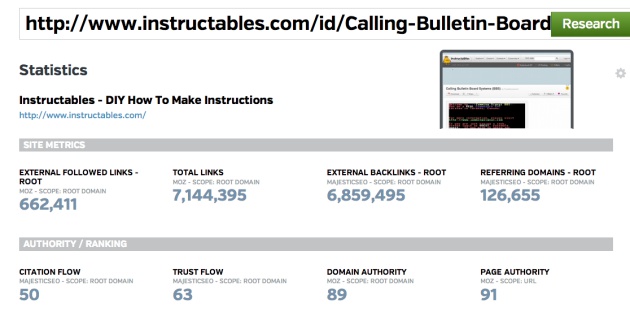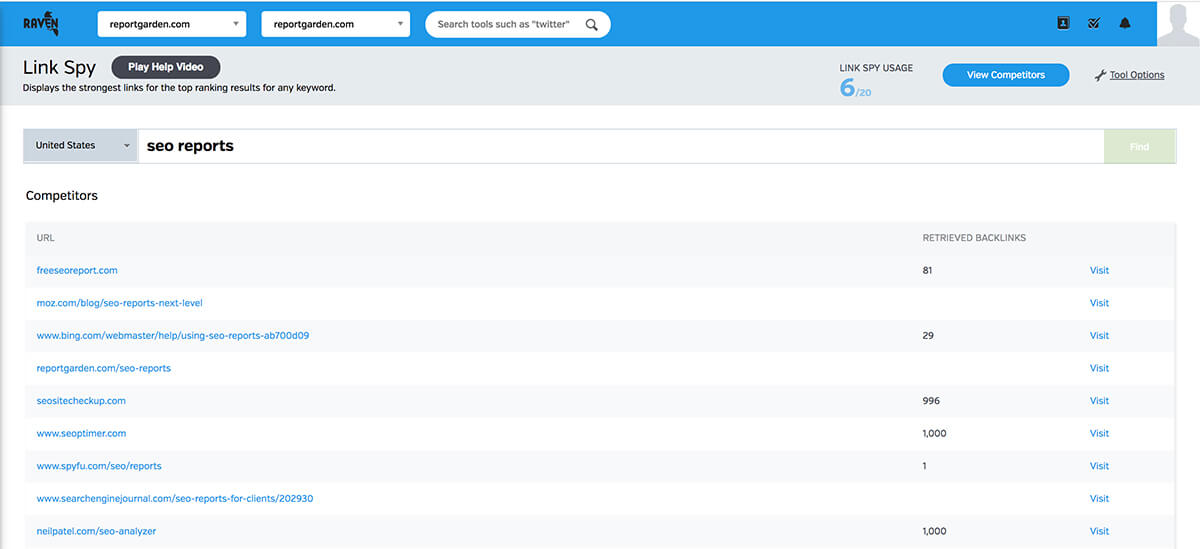Should I Put Other Blogs Links Onto My Website
People who surf the Web all day love shortcuts and efficiencies. When you're writing an online article, it seems obvious to link out to websites that your readers might want to check out. You're just making it convenient for them, right?
That might be what you think, especially if you're new to online marketing.
Many new marketers don't have any hands-on experience working on websites or building links. If online writing is part of your job, that could be a big problem. If you don't have an understanding of what it means to shape an online presence one link at a time, you could be damaging your search visibility, or worse, your brand reputation.
Especially now that content marketing seems to have morphed into the new SEO, it's important for every online writer to understand the purpose and value of a link, and to know why, when and how you should place a link on your own or a client's website.
Think of Links as Content
People click on links all day long. Why? Because there's an implied promise in that link placement. Some optimizers call it "scenting the trail," as you would do for a dog on the hunt. Similarly, your visitor expects to find additional information, i.e. content, along their journey.
So, if you think of links as content, you can begin to write with greater freedom. Links are no longer about SEO; they exist to support the theme of your piece, to provide specific detailed information beyond the scope of the article and/or to encourage an action.
Mini Case Study
Let me demonstrate the link-as-content idea in action.
In a recent post about social media skills, I referenced three types of websites that readers may or may not have heard of, depending on when they came of age:
- CompuServe
- AOL
- Bulletin Board Systems (BBSs)
I wanted to include links, because I thought that readers who didn't know about these websites might want to click and learn more about them. Basically, I wanted to give readers more content to pursue if they wished. Options for what I could link to were nearly endless. So how did I choose?
1. CompuServe: I unearthed that America Online bought CompuServe in 1998. With a pedigree like that, I had no real concern about linking out to this authoritative, albeit dated, website. Still, I used Raven's Research Central to verify my gut feel. Sure enough, all the trust signals were there.

2. AOL: This website is still alive, kicking and authoritative. That was an obviously OK link.
3. Bulletin Board Systems: Choosing a link for the history of BBSs required common sense and research. The first two Google search results delivered were Wikipedia links. In general, I don't like to link to this Google-preferred site as I do not believe it provides the "best" answer to the query, in many cases.
But, I also didn't automatically link to the next reference, BBSCorner, nor do I link to it here. Why?
Research Central shows 150,000+ external backlinks, but the authority signals are lacking. Even though this site ranks No. 3 behind Wikipedia (no small feat), when linking out, I still consider the Law of Unintended Consequences. To Google-proof the Raven blog or main website from any possible Google penalties down the road, I look for both quantitative and qualitative factors when selecting an external link.

Also, you'll notice the warning in the header in the above screenshot: Possible Duplicate Content Issues. All things being equal, you want to stay away from sites that have any quality issues.
Instead, I chose to link to Instructables, which represents a powerhouse in terms of authority, even on this internal page.

 I also chose this page because it provided the bare essentials on the history of BBBs, a screen shot and a parachute pants mention, which is the perfect '80's reference! Remember, to your readers, links are signs of content you like and recommend. There's an acceptable amount of subjectivity there.
I also chose this page because it provided the bare essentials on the history of BBBs, a screen shot and a parachute pants mention, which is the perfect '80's reference! Remember, to your readers, links are signs of content you like and recommend. There's an acceptable amount of subjectivity there.
One could argue that these websites have nothing to do with the focus of the post, social media skills. But search engines have become smarter, with Google's algorithm continually improving for relevancy and taking a more semantic approach to search queries.
5 Ways To Decide if a Website Is Link Worthy
Raven has thousands of active customers and thousands more trying out our tools like Research Central. If you're one of them, you can do the same kind of quick link research as I did. (If not, what are you waiting for? Sign up for a free 14-day trial!) Raven integrates trust signals from Moz and Majestic SEO.
If you don't use Raven, there are still ways to determine quality websites without using third party data providers.
1. How recently was the page cached?
I have evaluated thousands of Web pages and, even though the page appears in the search index, it may have been some time since the page was crawled. Looking at the cache date provides a clue to whether Google considers the site to be reputable. My rule of thumb is to pass over linking to a Web page with a cache date older than 2-3 weeks. In a highly competitive industry, I would want to see an even more frequent cache date.
2. Does it pass the sniff test?
There are plenty of ugly websites that still rank for competitive keywords. But this is 2014 and consumer expectations are higher than ever. If you would be embarrassed to show this website to a colleague or friend, it doesn't matter if the site's Trust Flow is over 50, you'll do more damage to your brand linking to a website full of popups and keyword anchor text links.

Does this website pass a sniff test? Or does it have a dog of a design?
3. Does it scent the trail for your reader?
People process information in distinct ways, which means you'll need a variety of content types to meet various cognitive needs. If you think of links as content, you can seek out websites that answer your visitors' questions in distinct ways. Keep in mind the informational needs of right-brain (visual) and left-brain (analytical) decision makers. You can link to a video, a Pinterest board, a Quora article, and so on.
4. Do you know the website owner?
Can you vouch for that person personally? The Web is still all about links, and editorial link building is a powerful tactic whether you're on the giving or receiving end. You just want to be sure that you're linking to a relevant or compatible website.
5. Would you provide the link whether or not it helped with rankings?
There are rewards to linking out to websites other than rankings. Look for websites that may reward you in some way but not necessarily with a link. For example, you can link to a customer's blog or website who, in turn, mentions the link at the next Chamber of Commerce luncheon. His business colleagues could then all visit your website, and one of them could become a customer.
Say No To 'No Follow'
Does all this seem like too much hassle? Again, if you're new to online marketing and writing for the Web, you might be wondering, "Couldn't I just mark the code around my links with the rel='nofollow' attribute, and move on with my day?"
No, for two reasons.
"No follow" should be used on links to untrusted content, on paid links and to prioritize crawl efficiency.
Matt Cutts, head of Google's Web Spam Team
Why would you want to link to sites that you don't trust? That's bad for your readers.
Debra Mastaler, owner of Link Spiel, in her book, SEO Myths From 27 Experts, states, "The idea that links using the rel="nofollow" attribute are worthless is a myth; it's also a myth they don't impart some value to the page being linked to. Keep in mind what the nofollow attribute is supposed to do; block the flow of link quality and the ranking support anchor text provides. The link still works even with the attribute added, so the link can still be counted and factored into traffic and usability equations."
Why wouldn't you want to reward a site that you do trust with a link? That's good for the Internet as a whole.
This logic should put to rest the whole "no follow" nonsense.
My Final Answer
So, when is it okay to link to other websites as you're writing?
I say whenever those links deliver the greatest possible benefit for your business and your customers.
Link Spy

Start Spying Links
Link Spy helps you find top-quality links based on those websites that are already ranking for your focus keywords.
Thank you!
Should I Put Other Blogs Links Onto My Website
Source: https://raventools.com/blog/external-link-building/
Posted by: perrythout1960.blogspot.com

0 Response to "Should I Put Other Blogs Links Onto My Website"
Post a Comment